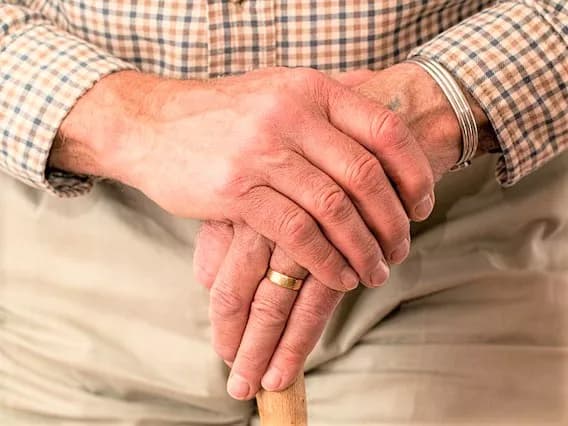
4 In 10 Men May Not Be Receiving Adequate Prostate Cancer Treatment In England
Almost 4 in 10 men with high-risk or locally advanced prostate cancer (prostate cancer that is likely to or that has already spread beyond the prostate) may be "undertreated"* by the failure to use radiotherapy or in some circumstances surgery, according to results from the National Prostate Cancer Audit (NPCA). The most common form of under-treatment is the use of hormonal treatments alone without additional radiotherapy or surgery. This means that some of the men diagnosed with high-risk or locally advanced prostate cancer may not be receiving the best treatment, according to research presented at the European Association of Urology conference in London in March 2017.
Prostate cancer is the most common male cancer, with around 400,000 new cases every year in Europe. In the UK, there were over 46,000 new cases of prostate cancer in 2014, leading to more than 11,000 deaths**.
"Our work shows that up to 40% of patients diagnosed with high-risk or locally advanced prostate cancer may not be receiving the best available treatments in combination with hormonal therapy.." said research leader, Mr Arun Sujenthiran (Royal College of Surgeons, England), ." .future work will explore reasons for this and will also follow the progress of these men to see if their survival has been affected as a result"
These figures are the first to come from linking the recently established National Prostate Cancer Audit to other major UK databases including the National Cancer Data Repository and the Hospital Episodes Statistics database, and so give the most robust estimate of treatment rates.
Locally advanced prostate cancer can be treated in a variety of ways. Major studies have shown the use of 'radical treatments' (aimed at curing prostate cancer and getting rid of all cancer tissues) in addition to standard hormonal treatments can improve survival compared to men who only receive hormones.1,2 The NPCA team including clinicians and data analysts have reviewed the 2014-2015 records of the National Prostate Cancer Audit and found that 61% of the 11,957 men with locally advanced prostate cancer underwent some form of radical therapy in addition to their hormone therapy. This broke down as follows:
· 42% were treated with radiotherapy (External Beam Radiotherapy)
· 18% were treated via surgery (radical prostatectomy)
· 1% had radioactive pellets implanted in the prostate (brachytherapy), so that radiation was directly applied to the tumour
The remainder of the group (39%) were placed on hormonal treatment alone. This helps to slow the growth of the cancer, but doesn't usually result in complete eradication of the prostate cancer.
According to the NPCA Urological Clinical Lead Professor Noel Clarke, "There is strong evidence that radiotherapy to the prostate combined with hormone therapy before and for a period after improves overall survival. The evidence for the use of surgery in this setting is less strong but some men are likely to benefit. We have limited evidence at present to show that surgery and hormone therapy is truly beneficial. Some healthy older men may be at risk of under-treatment. Further work is required to follow the long-term outcomes of these men but also to understand what factors contribute to some men in this cohort receiving radical treatment and others not
Commenting, Mr Prasanna Sooriakumaran, Urological Consultant at University College London Hospital, said: "This study has demonstrated that in current practice many men do not have their high risk prostate cancer treated by radical surgery or radiotherapy and hormones. The true reasons for this are unexplained and need further investigation to ensure that all men with this type of prostate cancer receive maximal curative therapy when it is clinically appropriate"
*Note: overtreatment is a potential problem with low-risk localised prostate cancer. This information concentrates on locally advanced prostate cancer
**European figures from http://eco.iarc.fr/eucan/CancerOne.aspx?Cancer=29&Gender=1#block-table-f. Actual UK figures are 46,690 new cases and 11,287 deaths in 2014, http://www.cancerresearchuk.org/health-professional/cancer-statistics/statistics-by-cancer-type/prostate-cancer
Materials provided by European Association of Urology. Note: Content may be edited for style and length.
Disclaimer: DoveMed is not responsible for the accuracy of the adapted version of news releases posted to DoveMed by contributing universities and institutions.
Related Articles
Test Your Knowledge
Asked by users
Related Centers
Related Specialties
Related Physicians
Related Procedures
Related Resources
Join DoveHubs
and connect with fellow professionals

0 Comments
Please log in to post a comment.